MercoPress. South Atlantic News Agency
Tag: meat
-
Tuesday, November 27th 2018 - 08:59 UTC
US and Argentina ready to sign a two-way fresh beef deal

Argentina is on the verge of signing a deal with the United States that would allow two-way trade of fresh beef for the first time in nearly two decades, the country's international trade secretary, Marisa Bircher, said. The agreement, expected to be signed within days, would simultaneously open beef imports to both countries, Bircher told Reuters in an interview.
-
Monday, November 12th 2018 - 07:11 UTC
FAO Food Price Index dipped in October pushed by dairy, meat and vegetable oils
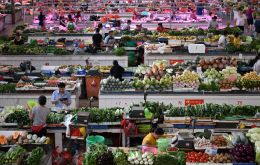
International food commodity prices dipped in October, as falling dairy, meat and vegetable oils prices more than offset a surge in sugar prices, the United Nations said. The FAO Food Price Index, a measure of the monthly change in international prices of a basket of food commodities, averaged 163.5 points in October, down 0.9 percent from September and 7.4 percent below its level a year earlier.
-
Monday, October 15th 2018 - 08:15 UTC
FAO food price index down in September because of growing inventories

Global agricultural food commodity prices fell in September due to growing inventories of key staples. The FAO Food Price Index declined 1.4% from August and is now 7.4% below its level during September 2017.
-
Wednesday, August 29th 2018 - 08:45 UTC
Argentina's beef exports expected to double this year boosted by China's purchases
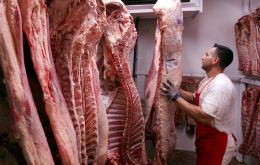
Argentina's beef exports could double in 2018 for a total of US$ 1.8 billion thanks to increased Chinese demand and a sharp devaluation of the peso currency, according to analysts and industry experts.
-
Friday, February 2nd 2018 - 20:00 UTC
Falklands Meat Company renovated including a new business manager
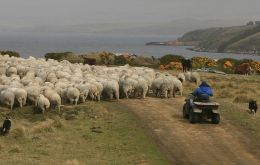
The Falkland Islands Meat Company (FIMCo) has announced the appointment of their new Business Improvement Manager. Michael Ledwith is to start this month on a new full-time contract, tasked with implementing change at the Sand Bay plant, “bringing peak performance through operational efficiency and productivity in the business,” according to information from FIMCo.
-
Monday, June 10th 2013 - 22:31 UTC
Slower global agricultural production in next decade but prices above historic average, says FAO
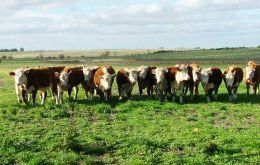
Global agricultural production is expected to grow 1.5% a year on average over the coming decade, compared with annual growth of 2.1% between 2003 and 2012, according to a new report published by the OECD and FAO released this week.
-
Tuesday, December 4th 2012 - 05:44 UTC
Paraguay economy poised to expand 11.3% in 2013 propped by agriculture
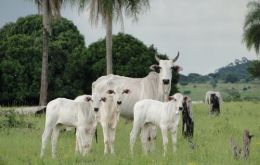
The Paraguayan economy is poised to expand 11.3% next year propped by the strong recovery from agriculture according to Pricewaterhouse Coopers, an estimate far more optimist than the 9.5% of the government budget.
-
Friday, August 17th 2012 - 06:31 UTC
US company wants to make 3D bio-ink printed meat for human consumption

A US start-up company has a solution for people who want to eat meat, but don't want to harm animals either: 3D printed meat. The 3D printing technique is already being used to create things from bike parts to chocolate to dental crowns and bridges. And scientists are working towards using 3D printing to make organs for transplant.
-
Wednesday, May 4th 2011 - 23:07 UTC
Argentina leads in horse meat exports: 23.880 tons in 2010
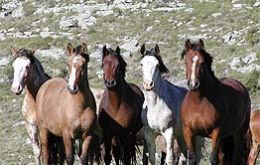
In spite of its love for horses, Argentina is the world’s leading exporter of horse meat having shipped 23.880 tons in 2010, valued 75 million US dollars according to the country’s Animal health and Agro-food quality service, SENASA.
-
Friday, April 8th 2011 - 23:26 UTC
Argentina promotes meat production with subsidized loans
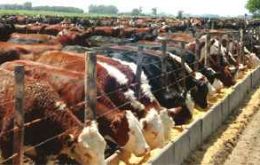
Argentina plans to extend the equivalent of 750 million US dollars in subsidized loans to meat producers to spur increased production of beef, chicken and pork.
